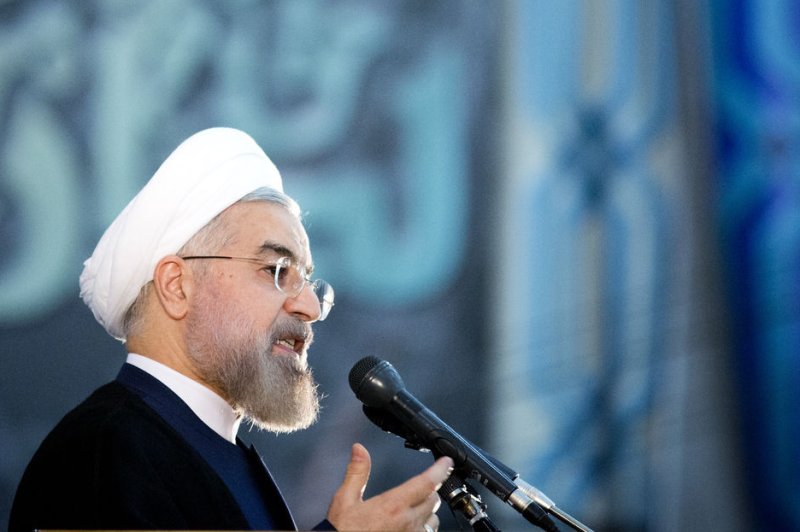Iranian economy under President Hassan Rouhani improving, though still faces major structural headwinds, International Monetary Fund says. File photo by Maryam Rahmanian/UPI |
License Photo
WASHINGTON, Dec. 22 (UPI) -- While Iran faces a brighter economic future as the result of easing sanctions pressure, the IMF said growth for 2016 will be slower than previous years.
Iran is expected to add more crude oil to the global market and bring in more foreign investors to an energy sector restricted by economic sanctions imposed because of a controversial nuclear program. Iran, the five permanent members of the U.N. Security Council, plus Germany, reached a breakthrough nuclear agreement in July that would offer sanctions relief for Tehran.
Iran's potential return as a major global oil player comes as crude oil prices trade at historic lows. The International Monetary Fund said in a review of the Iranian economy that oil prices and postponed investment decisions have slowed economic growth for Iran. Real growth in gross domestic product is expected to decline from 3 percent to somewhere between 0.5 percent and -0.5 percent in the coming year.
The IMF said crude oil prices were impacting the Iranian economy, as they have for other major producers, though the lifting of sanctions should improve the situation dramatically.
"However, Iran faces multiple constraints to unleash its growth potential and to achieve single-digit inflation sustainably," the IMF said in its report.
By the end of the year, Iran is expected to start up dozens of oil and gas projects, worth an estimated $185 billion. Production from Iran is rising, holding steady at around 2.85 million barrels per day from the 2013 average of 2.67 million bpd.
The IMF said Iran's economy depends too heavily on oil and natural gas, though Iranian officials too have proposed diversification schemes. Unemployment, however, remains high and doing business in Iran is costly.
"Placing the Iranian economy among the top emerging market economies over the next decades will require comprehensive reforms," the IMF said.
Iran emerged from economic recession in December 2014.















